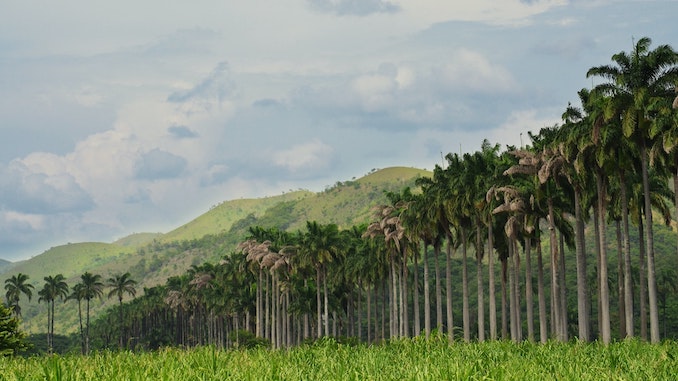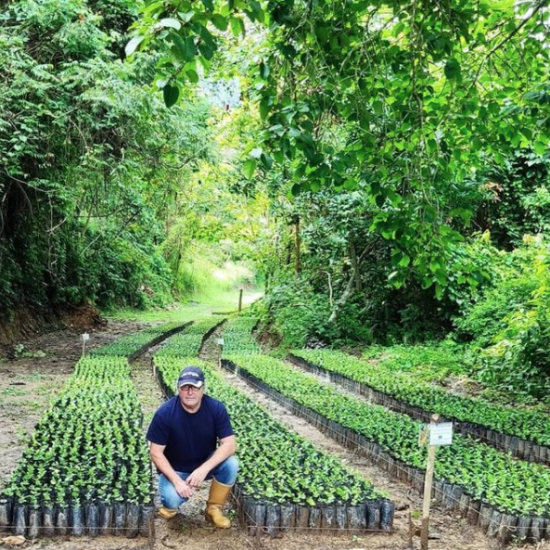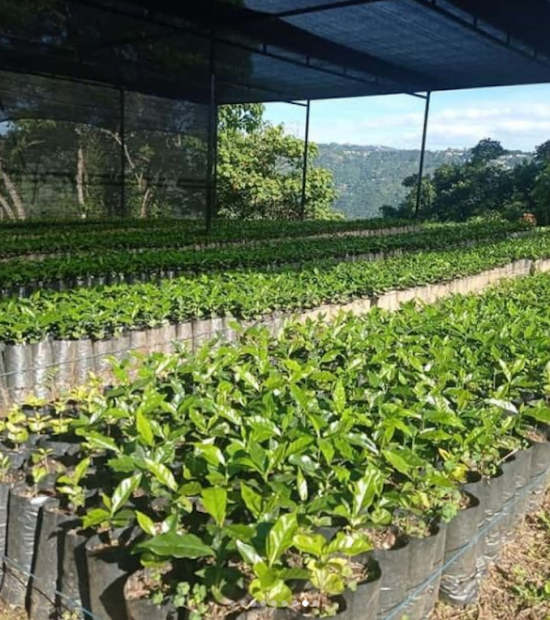
In attempts to stimulate the Venezuelan economy, coffee growers and other exporters are focused on improving specialty coffee in the region.
BY YKER VALERIO
BARISTA MAGAZINE ONLINE
Cover photo by José Prieto for Unsplash
Enrique Egaña-Wallis isn’t a coffee producer, but he has managed to grow fine coffee varietals in his backyard in Caracas. It wasn’t out of boredom, however, but as part of the Venezuelan Gesha Project.
We don’t know how Enrique convinced several certified Q Graders to assess coffees from the project. But after scoring them, the team knew it was worth it. All coffees obtained more than 80 points using the Cup of Excellence scoring protocols; one of them even got more than 88 points.
Enrique puts it simply: “I made it to demonstrate that we can grow specialty coffee in Venezuela. If I can grow Gesha in my backyard, just imagine what you can do at an estate above 1,800 masl.” Although Enrique is an optimist, he knows that it takes a lot more than imagination to make Venezuelan coffee internationally competitive.

Turning the Page: Re-Entering the International Stage
Earlier this year, the Inter-American Development Bank issued a report to describe the current situation of Venezuelan enterprises. The gloomy depiction of the Venezuelan economy isn’t surprising, but the report offers insights into the business landscape. Moreover, it illustrates with data some of the features I admire in Venezuelan entrepreneurs, particularly those involved in the coffee industry.
Looking for growth opportunities, Venezuelan companies are attempting to export their products and offer their services overseas. Among these, coffee producers aren’t the exception, and improving quality has become their motto.
In this regard, the Venezuelan Gesha Project is counting on specialty coffee to advance the industry to the international stage. Several coffee producers are taking this same approach for local production, and for the first time in decades, Venezuelan producers competed at an international auction at the Singapore Specialty Online Coffee Auction 2020 in October. Three different lots scored between 75.87 and 77.75 points, according to the Singapore Specialty Coffee Association.
Enabling Venezuelan producers to compete in the international market requires serious improvements in economic and societal conditions. Still, re-entering the international stage is interesting enough for many. According to Enrique this is particularly interesting, considering that Venezuela offers a unique non-volcanic terroir, with rich natural water resources, and a large and fertile mountain range above 1,000 masl.
Raúl Martínez, Q Grader, AST, coffee producer, and roaster was among the first to grow Gesha in Venezuela a few years ago. Raúl was one of the experts who scored the Venezuelan Gesha Project coffees, and he agrees with Enrique that high quality and innovation are among the best ways to advance Venezuelan coffee exports.
Additionally, the Venezuelan Gesha Project is promoting the use of artificial intelligence and satellite imaging to analyze soils, assess crop health, and improve yields.

Enriching Local Coffee Culture
Exporting goods isn’t an overnight solution to improving the Venezuelan coffee industry situation. However, focusing on quality has been a great opportunity for dozens of producers across the country to advance the practice. Small coffee shops offer single-origin coffee in the largest cities in Venezuela like Caracas, Valencia, and Maracaibo, among others.
Just 10 years ago, most of these businesses didn’t exist, and little was known about different brewing methods, varieties, or specialty coffee in general. However, a vibrant community of coffee enthusiasts has been growing over the years.
Local coffee events are working harder to achieve the highest standards. For instance, the Barista Coffee Fest in Maracaibo was a major milestone, along with the Venezuelan AeroPress Championship in Caracas, and the soon to be Brewing Championship.
Pushing Specialty Coffee Forward
Implementing top-notch technology to boost fine coffee production can enable producers to take advantage of local natural conditions. Having one of the richest water systems along with a non-volcanic terroir, and high, fertile grounds is an opportunity worth taking.
It might look naive to bet on an unstable and uncertain future. But what about working toward improving the future instead?
ABOUT THE AUTHOR
Yker Valerio (he/him) is a freelance content creator. After more than 10 years of working as a management consultant, he started his blog Bon Vivant Caffè to share his passion for specialty coffee.

